Speaking at the Vietnam Economic Forum 2025 - the second discussion session with the theme "Private economy: Removing barriers - Assigning responsibilities" organized by Nguoi Lao Dong Newspaper on June 5, Dr. Tran Du Lich, former Director of the Ho Chi Minh City Institute of Economics, acknowledged that Vietnam is facing a great opportunity to accelerate and develop strongly after the "four pillars" were issued.
Early conversion into policy
According to Dr. Tran Du Lich, Resolution 68-NQ/TW in 2025 on private economic development; Resolution 57-NQ/TW in 2024 on breakthroughs in science and technology development, innovation and national digital transformation; Resolution 59-NQ/TW in 2025 on international integration in the new situation; Resolution 66-NQ/TW in 2025 on innovation in law-making and enforcement to meet the requirements of national development in the new era are considered the "four pillars", meeting the requirements of national development in the new era.
To successfully implement the above Politburo resolutions, the prerequisite is to carry out a revolution in the arrangement and reform of the state apparatus. Reorganizing the apparatus to be streamlined, effective and efficient is the foundation for realizing the strategic vision set forth by the "four pillars".
"When implemented synchronously and effectively, these resolutions will contribute to building a truly creative and developing state. It can be said that we have never had such a great opportunity as now," said Dr. Tran Du Lich.
Resolution 68 clearly identified the private sector as the most important driving force of the economy. However, in reality, private enterprises are still facing a "maze" of overlapping and cumbersome business conditions that significantly limit their freedom of business. Thousands of business conditions still exist as invisible barriers.
"Putting the private economic sector in its proper role and position in the market economy is extremely necessary, not only at the policy level but also in law enforcement practice," emphasized Dr. Tran Du Lich.
According to businesses, the process of building laws and creating a business environment in recent times has brought about some positive results. However, the current institutional system is still facing many major challenges.
Ms. Ly Kim Chi - Chairwoman of Tan Dong Hiep Group, Chairwoman of Ho Chi Minh City Food and Foodstuff Association - said that there are still overlapping legal regulations, some policies change too suddenly, along with the lack of transparency in the enforcement mechanism. These are major barriers for businesses.
In the construction sector, Mr. Phan Huu Duy Quoc, Chairman of the Board of Directors of Construction Corporation No. 1 - JSC (CC1), cited that since the Politburo issued a conclusion on the development orientation of Vietnam's railway transport, the company has begun to prepare and improve its management, financial and project management capacity. However, it is difficult to expect domestic enterprises to "in a moment" become large corporations capable of implementing billion-dollar projects.
"To implement large-scale projects, it is necessary to promote the strength of connections between domestic enterprises, and at the same time consider cooperation with large foreign corporations. With the policies mentioned in Resolution 68, the state has created a favorable "highway" for development, private enterprises will certainly grow and develop together" - Mr. Quoc commented.
Peace of mind is paramount
CT Group representative expressed his honor to be one of the pioneering private corporations implementing the spirit of Resolution 68 and Resolution 57. This corporation proposed to invest in the high-speed railway line Ho Chi Minh City - Can Tho - Ca Mau, integrating urban models to offset operating costs, and at the same time proposed the Central and local governments to support special mechanisms and land funds.
In the field of microchips and drones, CT Group hopes to enjoy comprehensive incentives in high-tech zones, from tax exemptions, capital support to one-stop procedures. Enterprises need a legal mechanism for commercial flight testing, UAV export and public-private partnership. CT Group also proposed promoting carbon credit exchanges and green cryptocurrencies, linked to the Power Plan VIII; committed to accompanying the Government on the journey of green, sustainable development and technological autonomy.
One of the outstanding spirits of Resolution 68 is not to criminalize economic-civil relations. Lawyer Truong Thi Hoa analyzed the spirit of not criminalizing economic-civil relations not only for the private sector but also for the entire economy. This is very meaningful because in the business environment, without legal security, enterprises will not be able to operate with peace of mind, dare not invest or expand their scale. Peace of mind is a prerequisite for sustainable development of enterprises.
"In legal situations that lie on the border between administrative-civil handling and criminal handling, priority should be given to non-criminal handling. If criminal handling is required, the focus should be on overcoming economic consequences first. State inspection and examination activities also need to be innovated in the direction of supporting and warning businesses to promptly adjust, instead of waiting until violations occur before handling them," lawyer Truong Thi Hoa analyzed.
To achieve the above, training and improving the qualifications and ethics of civil servants and public employees is extremely necessary. They need to become a force serving the people and businesses, protecting the freedom of business and the right to property ownership in accordance with the spirit of the Constitution.
"The biggest wish of businesses today is to avoid the situation of "upper level, lower level congestion" and carry out a real revolution in administrative procedure reform" - Mr. Tran Anh Dung, CEO of Hung Hau Development Corporation, expressed.
(According to NLĐ)
Source: https://baoyenbai.com.vn/12/351321/Bo-tu-tru-cot-dua-kinh-te-tu-nhan-but-pha.aspx












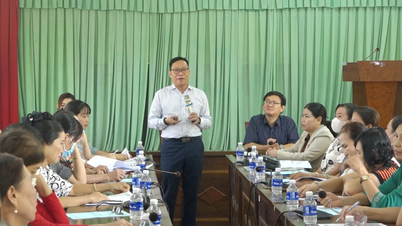












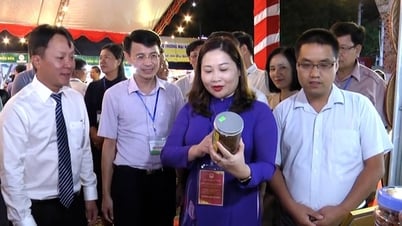






































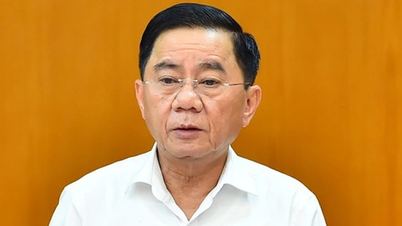




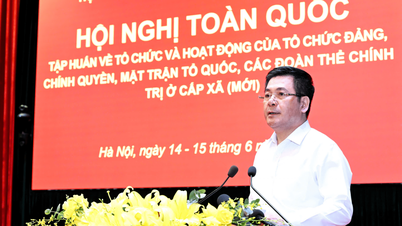


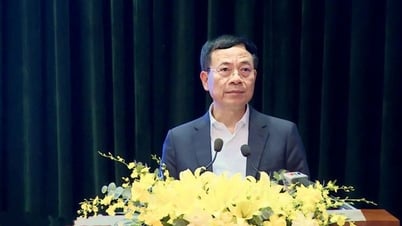






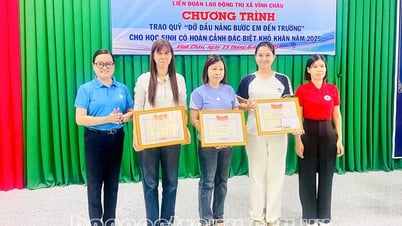


















Comment (0)